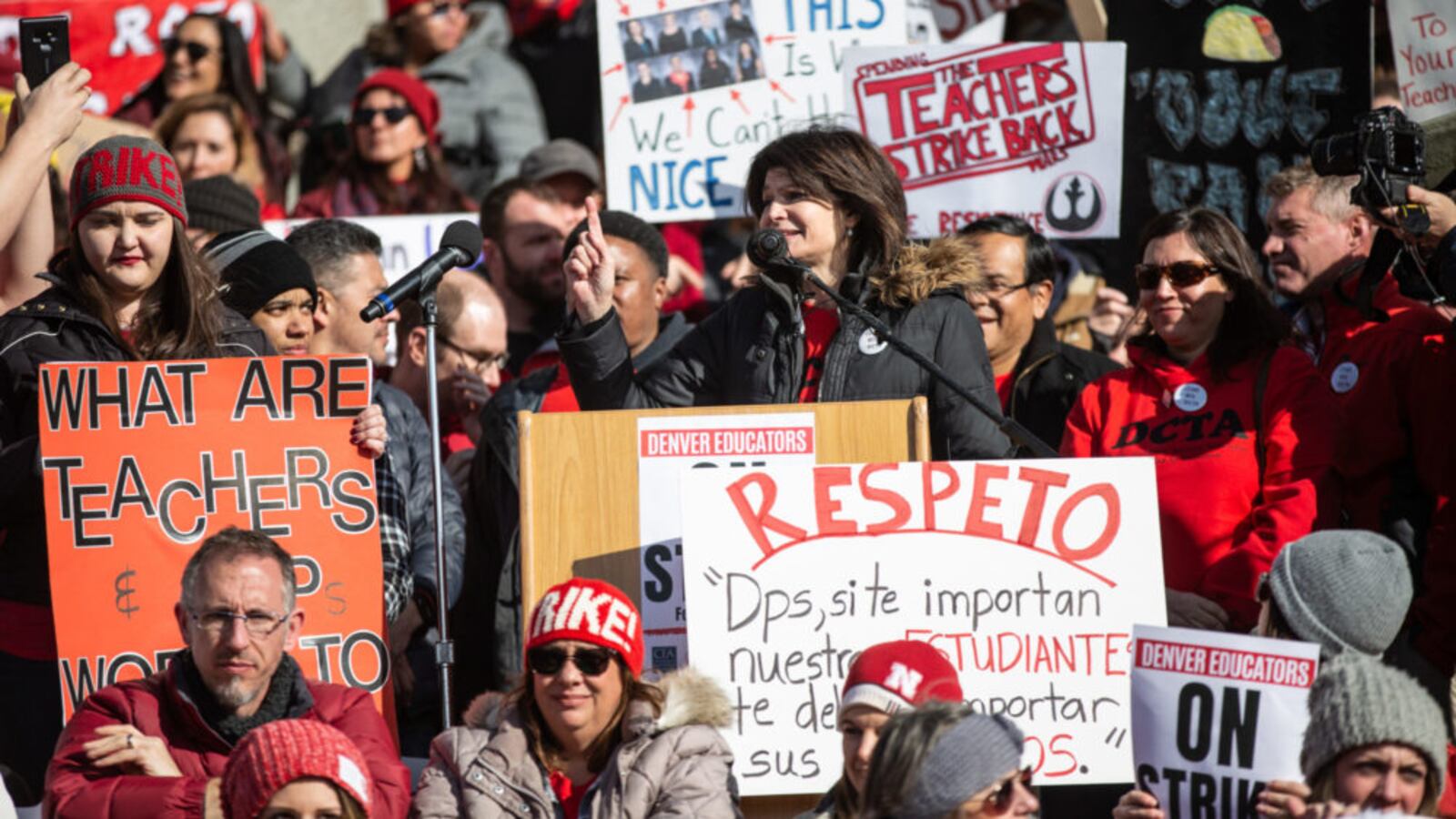In town to support the Denver teachers strike, National Education Association President Lily Eskelsen García said the labor unrest should serve as a cautionary tale for other districts that want to pay teachers in bonuses and incentives.
“For anybody who thought, let’s try this and see how it works, I want you to hear the people shouting over here,” she told Chalkbeat, standing near the picket line outside South High School Monday morning. “There is not one school district in the country that is going to look at Denver and think, ‘Oh, I think I’ll try that.’ No. They should have stopped this and changed this years ago, and they didn’t. And this is the result.”
The Denver teachers strike, which started Monday, may be the first in the country to turn not just on the issue of higher pay but more specifically on the kind of pay-for-performance systems that have long been part of the education reform toolbox.
The Denver Classroom Teachers Association helped design the ProComp pay system without the support of the national union that Eskelen García now heads. In the years since, the incentives and bonuses have become a source of deep frustration for many teachers who have lost bonuses for small changes in test scores, demographics, or school ratings calculated by the district.
Now, Denver Public Schools and the union are at odds over how the system should work. Observers all along the education policy spectrum are watching the Denver strike closely to see where the district and the union ultimately land — and how the system once hailed as a national model will look after the strike concludes.
The teachers union wants the district to increase base pay significantly and reduce the amount of compensation that comes from bonuses. The district has agreed that bonuses should be more predictable — and that base pay should be higher — but it wants to keep larger bonuses for teachers in high-poverty schools, in particular for those deemed “highest priority.” Superintendent Susana Cordova has described this as a question of equity for the students in those schools, who face many challenges and deserve teachers who stay.
The retention data from these schools is decidedly mixed, and many teachers on the picket lines say the bonuses simply don’t work. At the same time, the district reported lower participation in the strike at schools where teachers get those bonuses.
Eskelsen García said it is significant that Denver teachers are not shouting for a particular percentage pay increase, but to “stop the chaos that this has caused.”
“We’re looking at a completely different issue here than anywhere else in the country,” she said.

